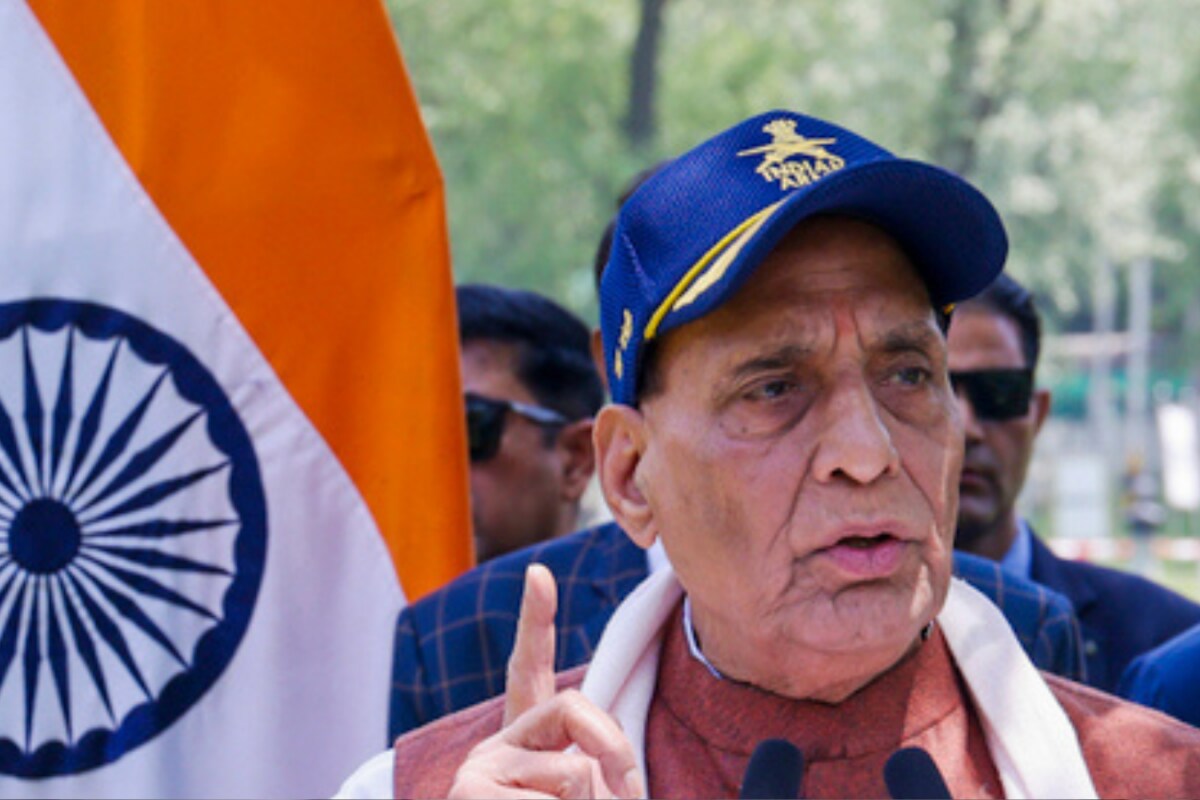

Here's a news article based on the latest updates:
Rajnath Singh's Strong Warning Against Terrorism
Defense Minister Rajnath Singh has issued a stern warning to Pakistan regarding its support for terrorism, stating that India's patience has run out. Speaking in Srinagar, Singh called for international supervision of Pakistan's nuclear arsenal, expressing concern about the safety of these weapons in the hands of an "irresponsible and rogue nation". He emphasized that India will not tolerate "nuclear blackmail" and is prepared to respond to terrorism with decisive force.
Singh highlighted the recent Operation Sindoor as the "biggest" anti-terror action in India's history, sending a clear message that India can go to any extent to eliminate terrorism. He criticized the May 7 attack in Pahalgam, stating that it was an attempt to hurt India's social unity. Singh asserted that India has inflicted wounds on Pakistan's chest in response.
Singh also addressed the issue of international financial aid to Pakistan, particularly from the International Monetary Fund (IMF). He argued that such aid could be misused to fund terrorist organizations operating from Pakistani soil. Singh urged the IMF to reconsider its decision, emphasizing India's concerns over global financing being diverted to support cross-border terrorism. He pointed out that while Pakistan is seeking loans from the IMF, India is in a position to contribute funds to the organization to help poorer countries.
He also cautioned Pakistan, quoting Urdu poet Bashir Badr: "Zara sambhal ke chalo, tum nashe mein ho". Singh stated that Pakistan is on probation and India is closely monitoring its actions. He further claimed that Pakistan has started trying to rebuild the terror infrastructure that was destroyed during Operation Sindoor. Singh lauded the capabilities of the Indian Air Force, stating that they can reach every corner of Pakistan, which was proven during Operation Sindoor. He also highlighted the power of the BrahMos missile, noting that even Pakistan has acknowledged its effectiveness.
COVID-19 Surge in Hong Kong and Asia
Health officials in Hong Kong and Singapore have issued warnings about a rise in COVID-19 cases, signaling a new wave spreading across parts of Asia. In Hong Kong, the head of the Communicable Disease Branch at the Centre for Health Protection, Albert Au, stated that COVID-19 activity in the city is "quite high". The number of respiratory samples testing positive for COVID-19 has reached its peak since last year. Severe cases and deaths have also increased, with 31 severe cases reported in the week leading up to May 3. The infection rate in Hong Kong has climbed from 1.7 percent in mid-March to 11.4 percent, exceeding the peak recorded in August 2024.
Singapore is also experiencing a surge in COVID-19 cases. The health ministry reported a 28% increase in cases, with approximately 14,200 infections reported during the week ending May 3. Hospital admissions due to COVID-19 have also increased by around 30%. Singapore now releases COVID-19 case numbers only when there is a definite rise.
Health authorities suggest that the increase in cases may be due to declining immunity in the population. However, there is no evidence to suggest that new virus strains are more infectious or lead to more serious illness. The primary COVID-19 variants circulating in Singapore are LF.7 and NB.1.8, both offshoots of the JN.1 strain. Across Asia, COVID-19 infections have been increasing for months, with recurring waves of infection. Health authorities are reminding people to get vaccinated, particularly those at increased risk who should receive booster shots.